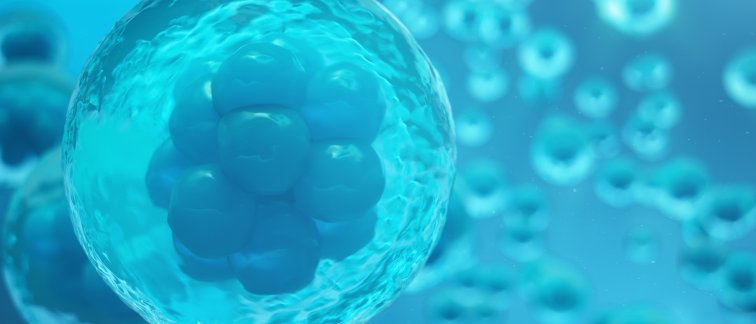heavily polarized medical-ethical issue. In the coalition agreement, the
coalition parties agreed that VVD and D66's plan for creating embryos for
research would be prepared but not debated in the House of Representatives.
The liberals can therefore get to work on drafting the law, but it will not be debated - let alone introduced - as long as the Christian parties CDA and ChristenUnie are in the coalition. Another part of the embryo plan - screening for carrier status of serious hereditary diseases - can be debated in parliament.
1. What exactly do VVD and D66 want?
Two things. One: to lift the ban on creating embryos for research. According to the current embryo law this is not allowed, which is why scientists work with so-called supernumerary embryos that remain after IVF treatment. The problem is that these embryos are already somewhat older; for good research into serious disorders - for example, the muscle disease FSHD - and for success rates in IVF treatment, embryos are also needed that are less than three days old, a clump of an average of eight cells.
"Take IVF procedures, they are fierce, I know from up close," says co-initiator Jan Paternotte, group leader of D66. "About 20 to 30 percent of the attempts succeed, so often women undergo hormone treatments for attempts that fail. If you want to increase the effectiveness of IVF treatments, research into early embryos must become possible." The second part of the political plan is screening the embryos for carrier status of serious diseases. Doctors can already exclude embryos with demonstrable abnormalities from IVF treatment, but VVD and D66 want potential carriers to be excluded as well. VVD party chairperson Sophie Hermans: "Then you look at whether an embryo is healthy, the embryos with serious diseases you exclude for IVF. That's really something else than tinkering with genetic material."
2. What do scientists say?
Various academic advisory councils have long argued for lifting the ban on embryo production for research, so unexpected are the VVD and D66 plans, believes proponent and clinical embryologist Sebastiaan Mastenbroek (Amsterdam UMC). He speaks only of a 'repair' of an earlier 'missed opportunity': ,,In the end you will actually produce fewer embryos than you do now. In the Netherlands, 70,000 embryos are created each year for a total of approximately 14,000 IVF treatments, from which about 5,000 children are born. If you do allow embryos to be made for research and incorporate those lessons into your IVF treatments, then that success rate can go up, and you will also need fewer embryos in the future."
It's also safer for the women undergoing IVF treatments, Mastenbroek believes. "Now we use mouse embryos or supernumerary embryos after IVF, and then we go straight to the patients to apply it. We would rather have an intermediate step: if you can also test encouraging results on early embryos, that is more careful. And the strange thing is: in the UK it's allowed, in Belgium too. And not here. Whereas we really have the right conditions: the medical-ethical supervision here is solid, the treatments are also not so commercially driven."
3. So why are the opponents so vehemently opposed?
The criticism is mainly principled and ideological. For Christian parties such as ChristenUnie, cultivating embryos for research is half the story, their skepticism focuses on the follow-up process: the embryos are destroyed after research. "Life is worthy of protection from the very beginning to the end," reports MP Mirjam Bikker. An embryo has everything in it from the first cells to grow into a unique human being. That's why it was crucial for us in the formation that we agreed that this far-reaching legislation will not be considered."
Director Diederik van Dijk of the Christian association NPV is also strongly opposed. "The coalition parties are pushing hard. We are against it, life is deliberately created to experiment with, then life is destroyed. We reject this in principle. How far are you willing to go? What do you also accept in terms of suffering and brokenness?" VVD member Hermans does emphasize that creating embryos for research and selecting for certain serious diseases is only allowed under strict conditions. "You have to draw a sharp line: you can't work with genetic material to force brown or blue eyes. This is about incredibly serious pregnancies.
4. Is there a political majority for broadening the embryo rules?
The supporters of VVD and D66 think so. They look to parties such as GroenLinks and PvdA, who have previously argued for a widening of the possibilities. But also recent medical-ethical Parliamentary debates on, for example, the abortion pill at the family doctor's and the scrapping of the reflection period for an abortion suggest indeed a generous progressive majority. "Although there are no guarantees," says Paternotte. "It is important that there is a good social discussion about this."

